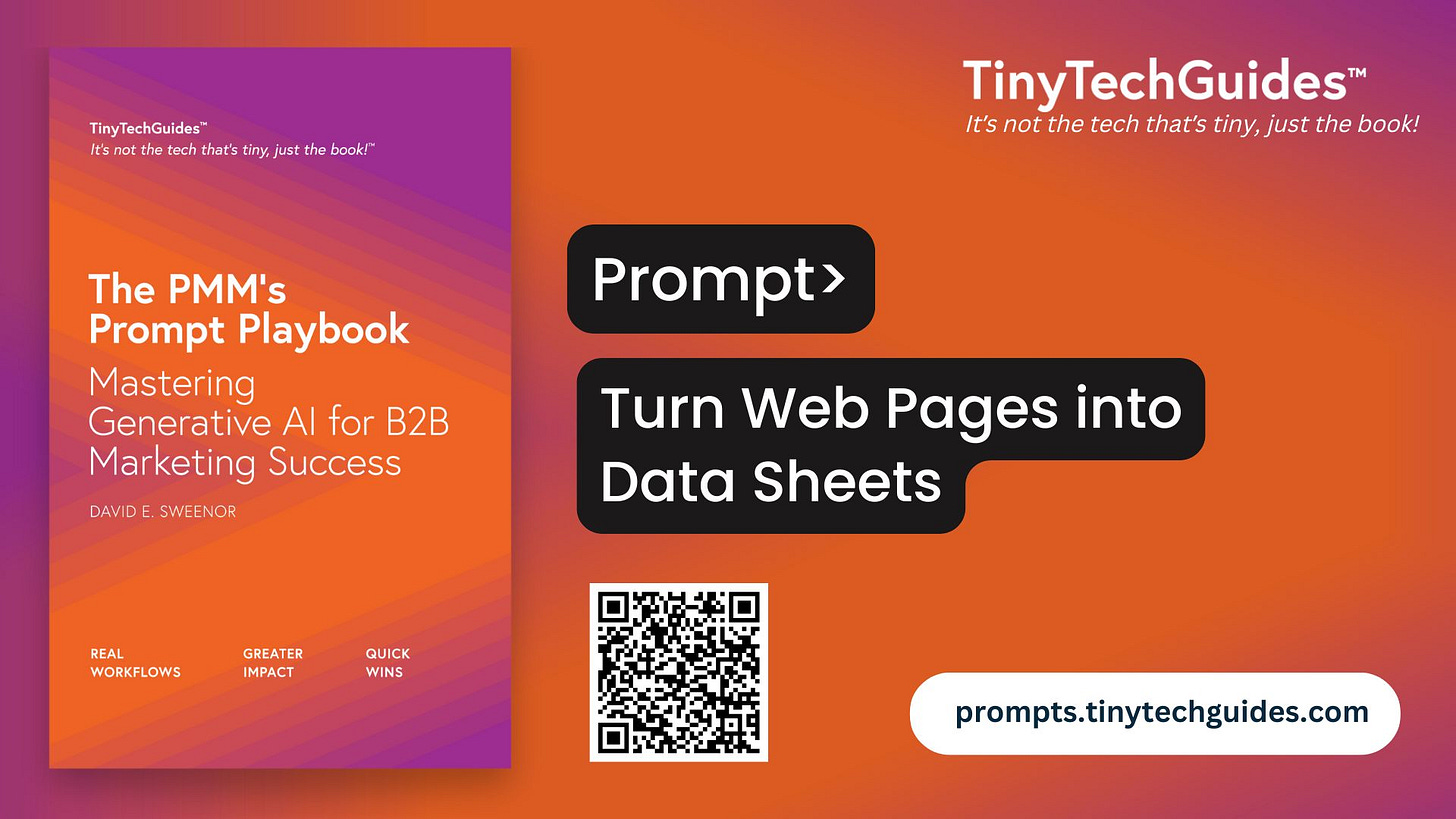Turn Web Pages into Marketing-Ready Data Sheets
Convert detailed web content into clear, skimmable datasheets with consistent messaging and brand tone.
Prompt Workflow: Web Page to Data Sheet Workflow
This prompt is not part of The PMM’s Prompt Playbook which has 30 ready-to-use prompts. If you're looking for more cut-and-paste prompts, join the Substack! Paid subscribers receive new cut-and-paste prompts every week.
Get the PMM’s Prompt Playbook and Modern B2B Marketing today!
What This Workflow Does
This workflow transforms detailed web page content into a structured, professional data sheet while preserving the original voice and messaging. It guides you step-by-step—from analyzing the source content and pulling out key value props, to mapping, reformatting, and refining the info for your data sheet template. It's built to keep the language authentic and make the final output both visually clean and marketing-ready.
Workflow Steps Summary
Step 0: Define inputs
Step 1: Analyze the web page content
Step 2: Extract core value propositions
Step 3: Map web content to data sheet sections
Step 4: Reformat for visual and written clarity
Step 5: Create final draft of the data sheet
Step 0: Define inputs
{web_page_url} = URL of the source web page
{data_sheet_template} = Structure or section names of the data sheet template (e.g., Overview, Features, Benefits, Use Cases, Technical Specs, CTA)
{product} = Name of the product or service
{industry} = Industry focus
{persona} = Target audience (e.g., IT Director, Procurement Manager)
{voice_preservation} = Yes/No on whether to preserve original language as much as possible (set to Yes for this one)
Step 1: Analyze Web Page Content
#Role
You are a product marketing analyst.
#Context
You have access to a web page for {product_name} in the {industry} industry. This web page contains detailed marketing and technical content aimed at {persona}.
#Task
Read and analyze the content of the web page at {web_page_url}. Break it down into key themes, sections, and notable messaging patterns. Identify any standout phrases or unique language that define the voice of the content.
#Format
Return an outline of the page structure with bullet points under each section summarizing the main ideas and any key phrases worth preserving.
#Tone
Analytical, observant, and faithful to the original voice.
Step 2: Extract Core Value Propositions Using Original Language
#Role
You are a messaging strategist focused on value articulation.
#Context
Using the analysis from the web page, your job is to extract value propositions directly from the original content while preserving the language and flow.
#Task
List the top 3–5 value propositions of {product_name}. Where possible, quote directly from the web page or paraphrase with minimal change.
#Format
Numbered list of value propositions with the original quote or near-verbatim phrasing. Include a short note on why each one is compelling for {persona}.
#Tone
Crisp, focused, and respectful of original language.



